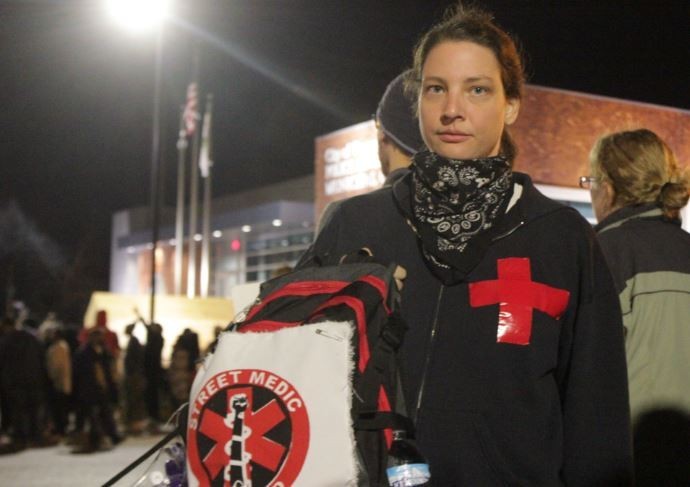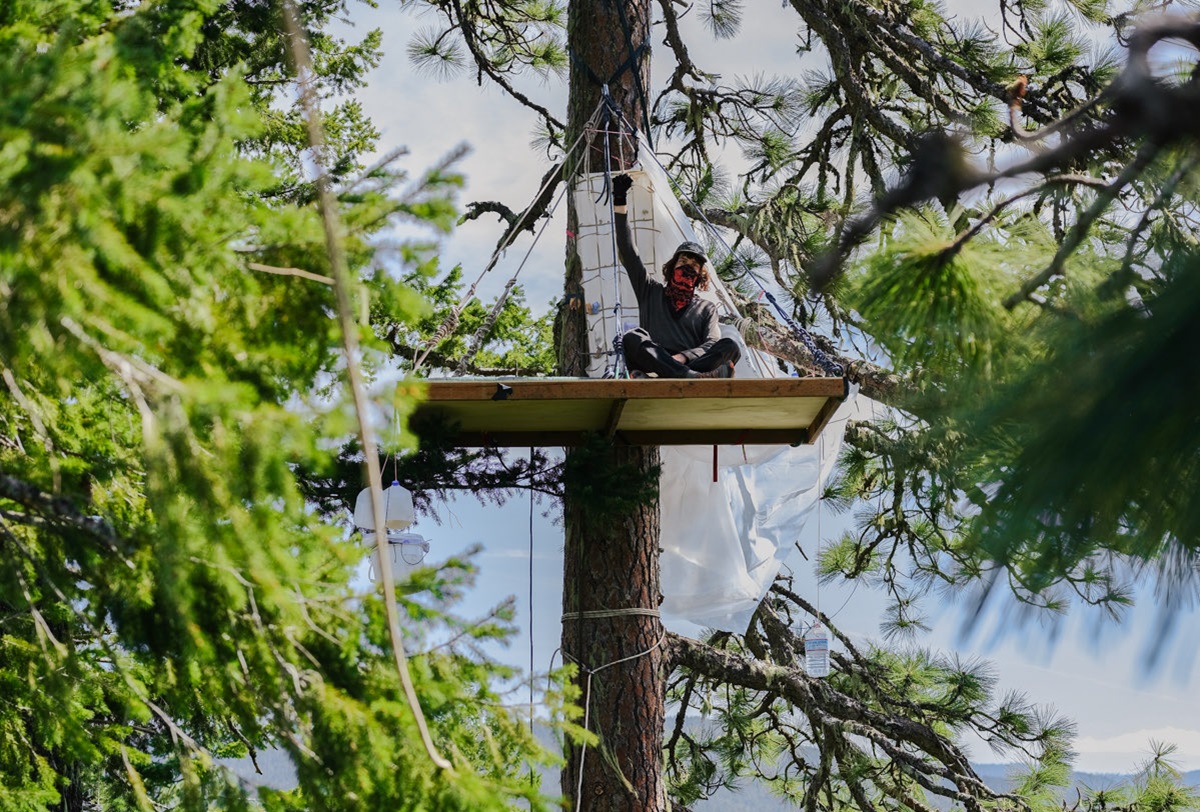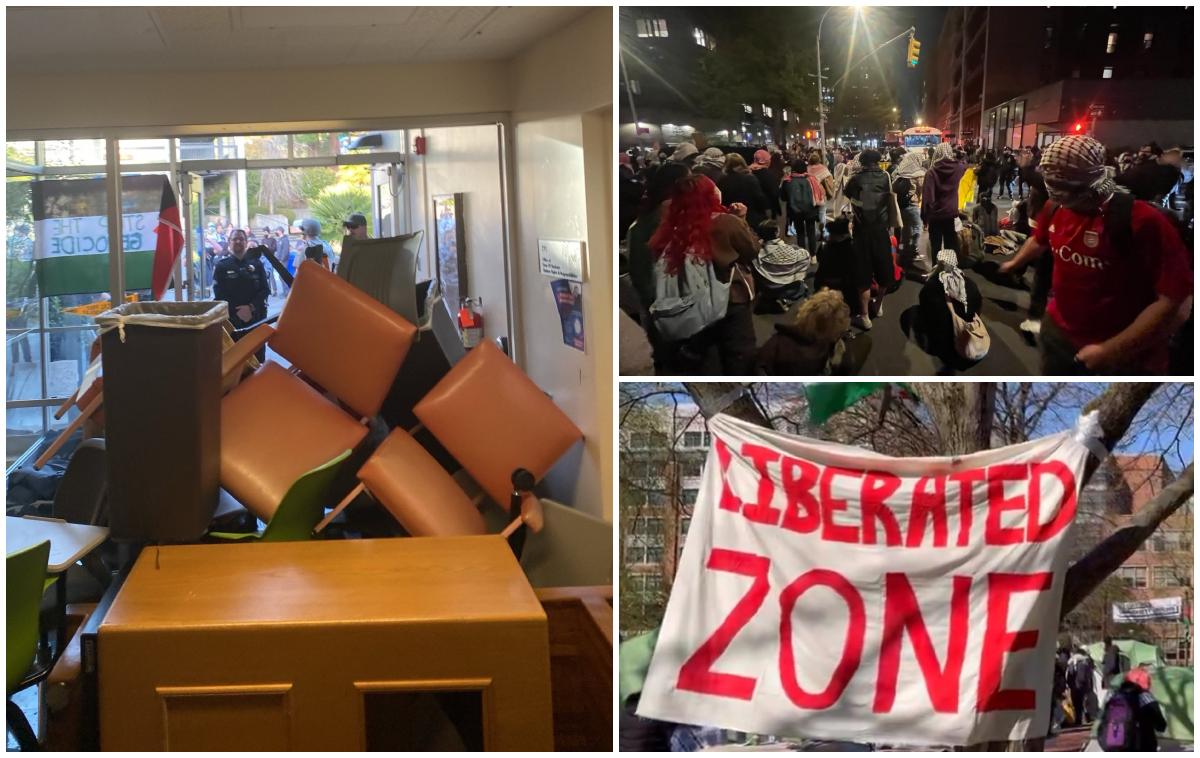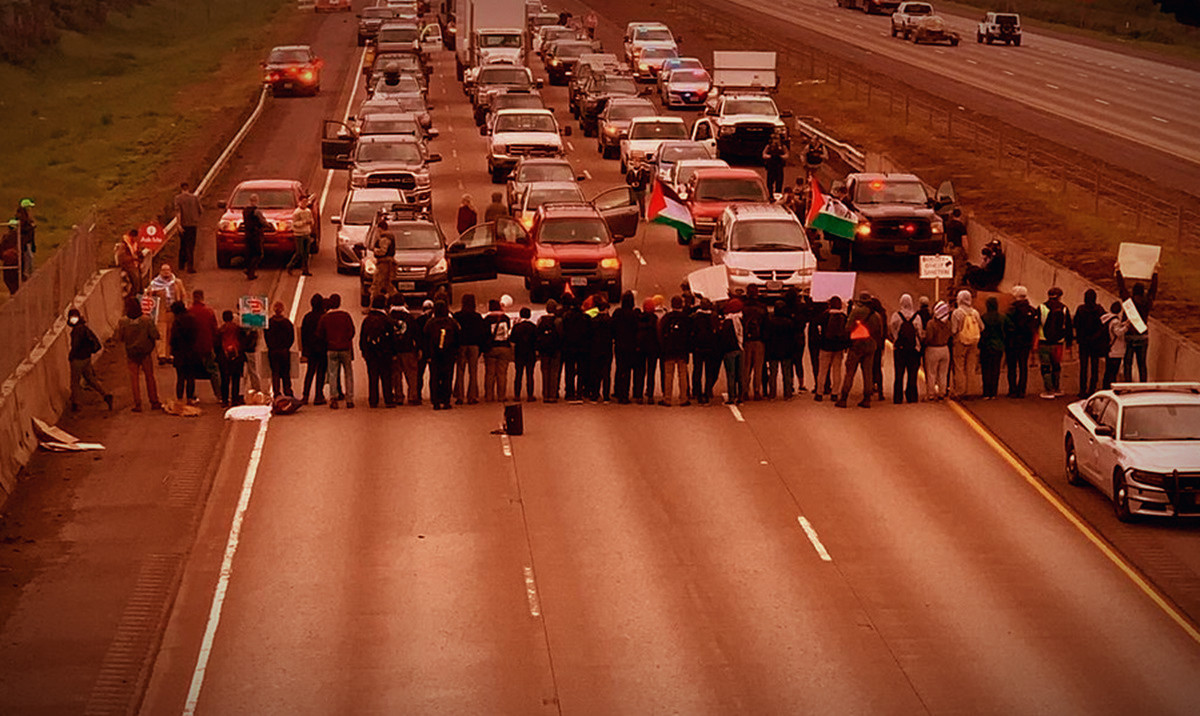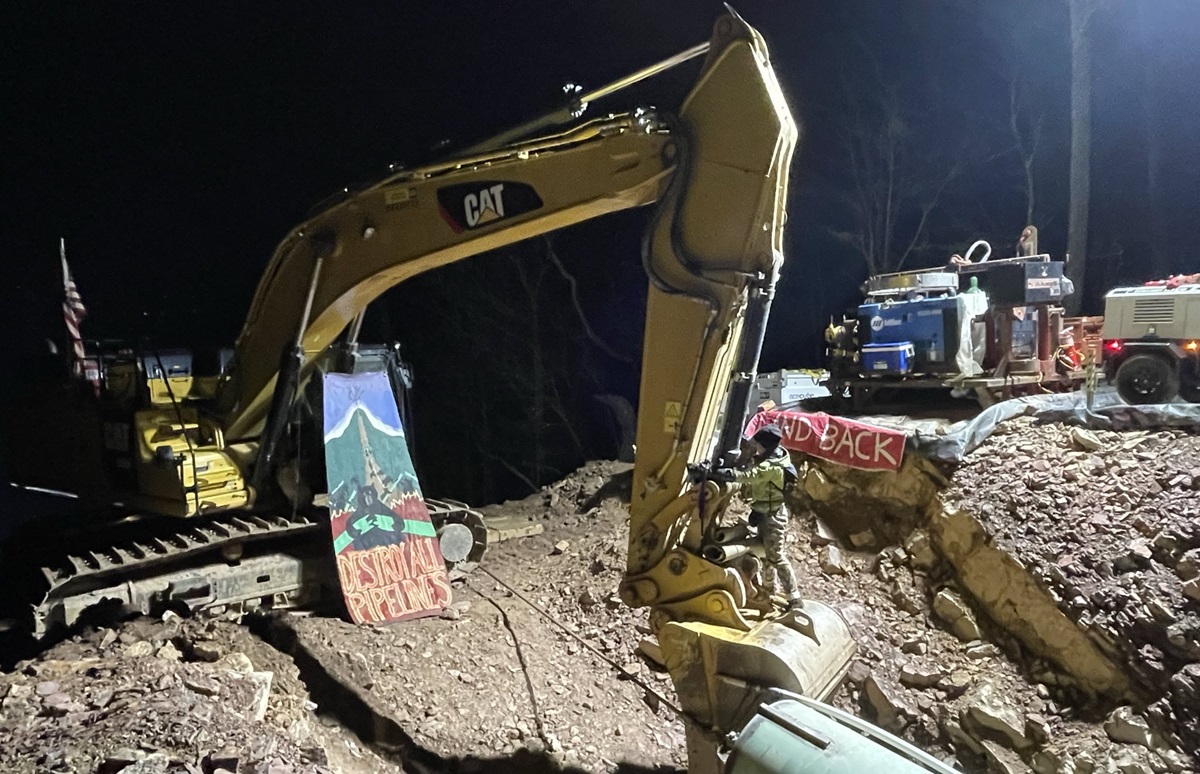Filed under: Anti-fascist, Editorials, US
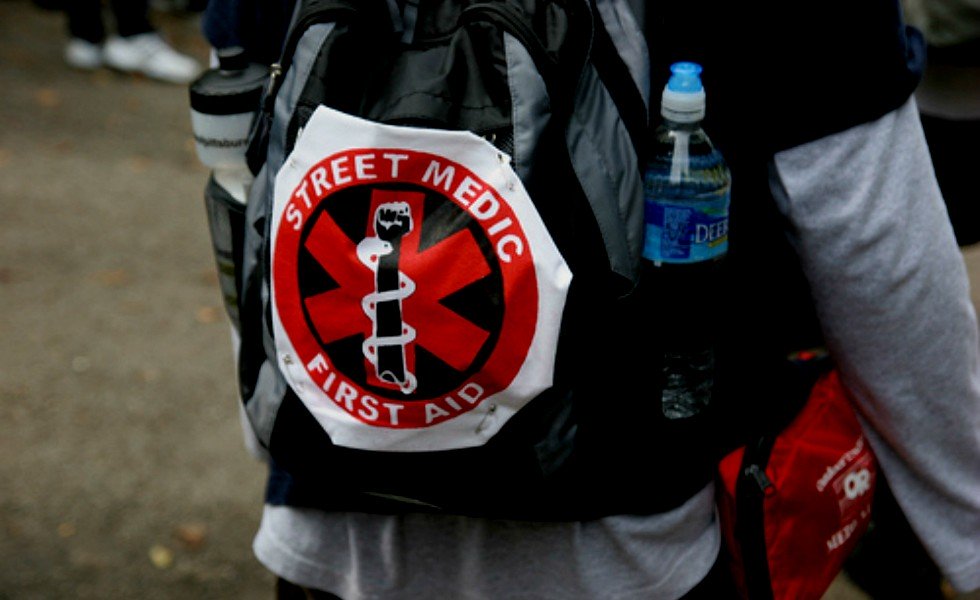
Submitted to It’s Going Down
June 26th, 2016 in Sacramento put the skills of medics at various levels of training to the test. While the white nationalists were not given access to the capital steps for their “anti-antifa” rally, they still claimed that the number of injured antifascists was their victory. We are aware that this is posturing on their side; they would have claimed a victory no matter what happened (they need to protect their fragile white nationalist egos, after all). Still, walking away from this event and its aftermath, it seems unlikely that white nationalists and fascists will not continue to escalate their physical attacks against all anti-fascists and others who put themselves on the front lines against increasingly bold white nationalists. Given this environment, it seems necessary to consider the role of medics in our ongoing struggles. The following was assembled by some of the medics present in Sacramento on June 26th. It constitutes a reflection and hopefully some options on ways to move forward.

In sharing the reflections and thoughts on moving forward from some of the medics present, this group prioritizes the essential role that medics, legal, and others continuing to do support and care work had and continue to have, after June 26th. We thank you all, known and unknown, for your part in keeping the wounded alive and cared for and your necessary role in this struggle. We offer these reflections given our own experiences on and after June 26th.
- Recognize that medical planning can and should be involved in organized actions. Medics need to be involved in planning. It is possible that medics can be included in tactical groups, while medics do not need to be involved in the actual discussions of tactical maneuvers, they should be prioritized during planning. A possible strategy is to plan to have medics treat at the level of confrontation expected. Consider what tactical groups see as the most extreme actions of self-defense and make sure medic teams are aware of this.
- Here are a few possible courses of action for people supporting medics:
- If you don’t have basic medic training, watch out for medics, especially when they are treating someone. Ask yourself if you are willing to stand between medics and police and to try to possibly negotiate with police when they try to push medics away. Let a medic know if you are assuming this role. Recognize that medics are likely to be targeted by the police or by white nationalists for their essential role in keeping the struggle alive. Be aware that medics who are black, brown, queer, trans, etc. may be specifically targeted during these events.
- Another role that you can take is to stand between photographers and those injured and receiving treatment. Many images of the injured from June 26th have circulated in social media and been picked up by white nationalist groups seeking to further intimidate those on the side of antifa (with specific focus on intimidation and threats against people already injured). Some of these images have even been utilized by groups espousing non-violence, misconstruing the injured as cautionary tales and ignoring that people made necessary and important decisions in Sacramento and that it was the Neo-Nazis who are responsible for the types of injuries that occurred. Additionally, the proliferation of photos of people being injured or treated can be traumatizing for those who were hurt. Consider security, but also consider our friends. One of the best ways any of us can support people who are already in pain is to preserve their privacy, make sure they can make choices about moving forward, and help to ensure that when they recover they don’t have to relive the moment of being injured every time they log in to social media or look at the news.
- Get basic medic training! More people with basic training frees up skilled medics to deal with more severe injuries. This doesn’t mean that you have to medic, but it does mean that you will have enough knowledge to utilize supplies carried by medics or to carry basic treatment materials for yourself.
- If you do decide to medic an event, be sure that you are capable of doing this. In instances where there may be intense injuries, assess yourself and your capabilities to provide support. Recognize that there may be instances where your skills come up short, but that your skill level may support medics doing more intense work. In addition to this, take care of yourself if you are a medic! You, too, need food and water and rest beforehand, and care afterward.
- Be cognizant that medics and others are working toward the same goals. Care work, like legal and medical, not only helps in the after event but frees up more space for people to act confidently in the moment. People are less afraid to be hurt or arrested if they know they are supported and like they will received care and support if this does happen. This is about courage to take necessary actions but also about working together as we continue.
- Medics also have to think tactically – if you do decide to medic, you will have to think about how you move and position yourself in relation to conflict. Keeping medics safe, and (for medics) thinking about how to be close to an event without possibly being injured or too identifiable as a medic when not giving treatment, helps to ensure that medics can play a vital role. Keep a scan for where medics are during times of less immediate conflict.
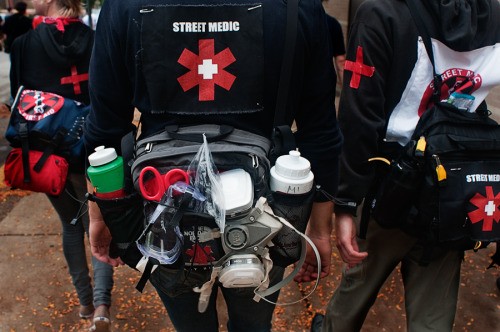
- For all of us, it is important to recognize that people who treat trauma injuries within institutions also have material support for mental health (insurance benefits, you know?). Medics and others who treat the injured will need your support, care, and follow up to provide these services. Considering that people doing care work are often people of color, women, and queer and trans people, recognize that care work happens on top of their day to day survival. Checking in with medics not only works to ensure they can medic in the future, but also often works against white supremacy, patriarchy, homophobia, and transphobia.
- Be careful of how you criticize the medical aid provided at an event or people’s levels of skill. Recognize that being a medic involves a huge amount of risk and can also be a psychic undertaking, especially for those without access to formal medical training.
- Moving ahead, we will need to explore the differences in tactics utilized by white nationalists and police in riot situations. Recognize that even trained medics may not be prepared for circumstances with which they are unfamiliar. This is something to think about collectively and individually, especially considering that white supremacists will feel more comfortable to incite violence as we move ahead (knowing that they can stab people in front of police and walk away without repercussions).
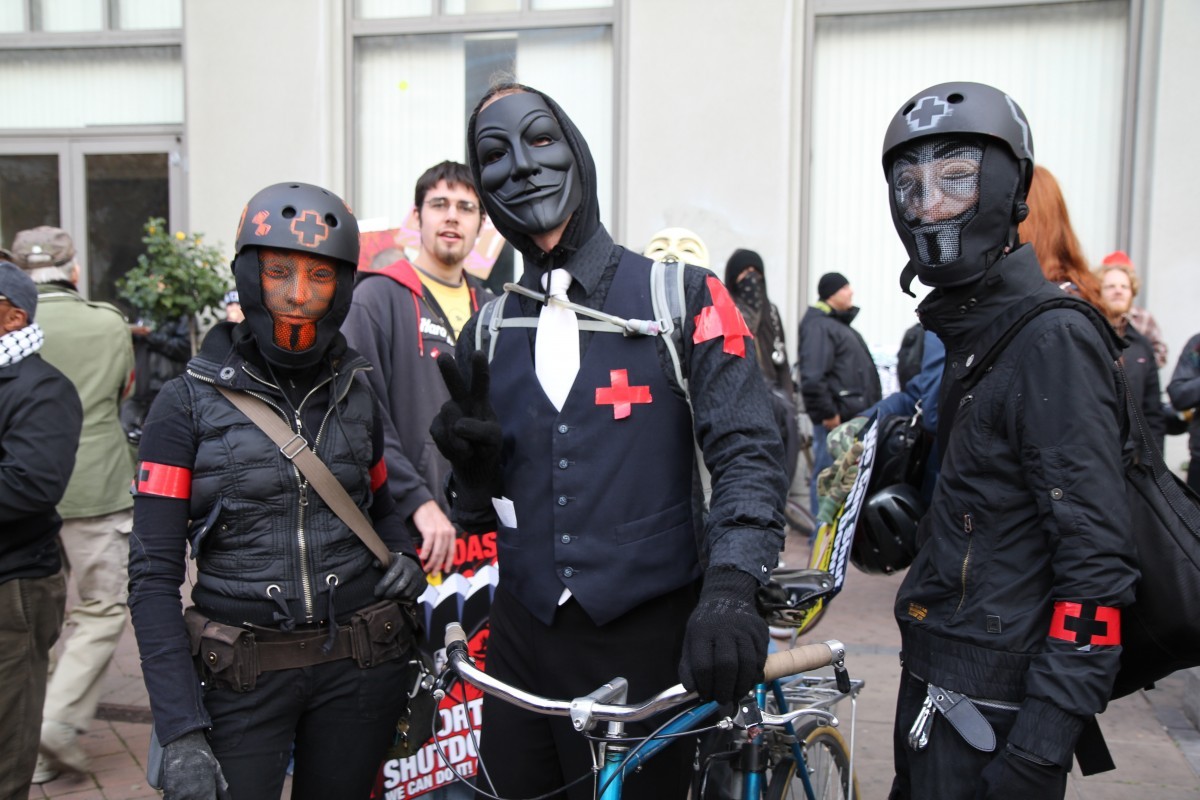
- Medic supplies are expensive! Find and stock up on quick clot and trauma packs, and consider whether or not you are able to provide financial support for medic supplies.
- Please, stop circulating images of the injured! The spectacle of injured antifa is not helping our cause and works against what medics were there to do.
- Remember that designated medics, those with formal training, and many others helped save lives on June 26th! This was a huge undertaking and this group of medics is forever grateful to those who brought formal training skills into the event even in the face of a very intimidating police and rescue presence that was determined to delay care to the black men and trans women who were seriously injured by white nationalists. That said, medical bills are expensive! This article has a number of ways to show support and we are stoked on the amount of support and actions that have already happened!
In closing, we thank you for all of your ongoing support, your commitment to supporting medics and each other in this struggle, and for all that you will do in the future as we continue to fight together against white supremacy in all of its forms! We hope that these tips and reflections will prove useful in our ongoing struggle!
